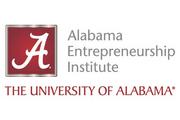
The HudsonAlpha Institute for Biotechnology has been selected by the National Science Foundation to receive a substantial grant.
The NSF funding totals nearly $300,000 and will be aimed at improving an undergraduate STEM Education program at the Huntsville facility.
The project, Characterizing Our DNA Exceptions (CODE), introduces bioinformatics research to students from schools historically underrepresented in this type of undergraduate experience. Through in-person and online remote projects, students work with faculty advisers and mentors to computationally analyze DNA variants including agricultural and anonymous clinical samples. By using computational modeling and database analysis to inform the significance of DNA variants, students have the potential to make new scientific discoveries.
“This collaboration with students and faculty at non-research-intensive colleges is an innovative way to integrate authentic, interdisciplinary research into the undergraduate curriculum. It is another opportunity to continue building the STEM workforce,” said Neil Lamb, vice president for educational outreach at HudsonAlpha.
The new grant will allow the Huntsville-based organization to expand on its earlier work with CODE and build a regional network of smaller, post-secondary institutions across the Southeast, along with the supporting educational resources for implementation. By engaging students in bioinformatics research, CODE seeks to increase the number and diversity of those pursuing STEM careers, particularly in bioinformatics and related fields.
“The scalable cost of a bioinformatics research project like CODE levels the playing field for small colleges and universities, increasing STEM research opportunities for underrepresented students,” said Michele Morris, workforce development lead for HudsonAlpha.
According to HudsonAlpha, the job growth in the STEM fields over the next decade is expected to far outpace the national average, yet current estimates show that fewer and fewer high school students are interested in STEM careers. As a result, the demand for STEM workers is outpacing the available workforce of skilled professionals. CODE was created to strengthen the STEM workforce by providing training and skills in the computational field. The grant award is for three years, and the project will begin in fall 2021.




